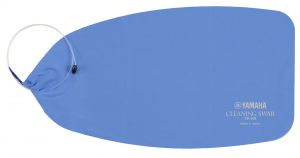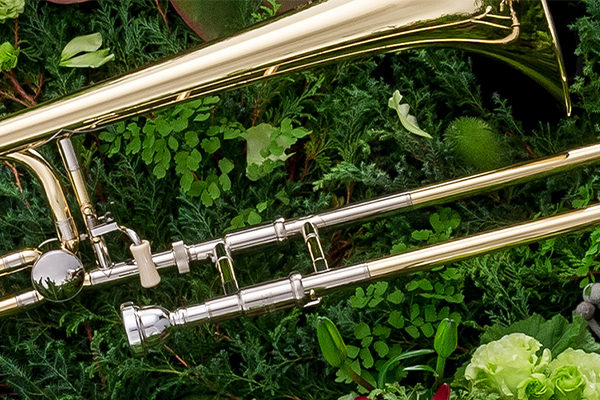How to Keep Brass Instruments Clean … Inside and Out
Some simple tips to help avoid that panic trip to the repair shop.
For many musicians, it can be difficult to maintain a high level of playing while at the same time managing a busy lifestyle. Normal day-to-day activities can make it difficult to keep our home, car — and yes, the instrument we play — in good condition. Here are some simple ideas that will allow you to keep your brass instrument in optimum working order and help avoid that panic trip to the repair shop.
Exterior Maintenance
The way to keep the exterior of your instrument looking good depends upon the type of finish. For most brass instruments, the finish will either be lacquered or plated in silver or gold. Many finishes are polished to a high luster and then a clear lacquer is applied to protect the metal underneath.
To remove fingerprints, dust and smudges (usually from tuning slide grease and/or valve oil) on instruments with lacquered finishes, wipe down the exterior with a soft cloth to which a small amount of furniture polish has been applied. This will help to protect the finish and reduce the need to clean it often. Most polishes contain wax or silicone and these will also work well to reduce the water spots that will collect on the exterior with regular use.
For instruments with plated finishes, start with a glass cleaner to remove grease and grime as well as those pesky fingerprints. Note that silver-plated finishes will also tarnish over time. An easy way to keep them looking good is to use a silver polish cloth impregnated with a dry polish. (This works equally well on gold-plated instruments.)
One more exterior maintenance tip: Avoid leaving your instrument in direct sunlight for extended periods. Sunlight can and will tarnish any plated finish, especially if the instrument is exposed on a daily basis.
Interior Maintenance
Over time, there will be a natural buildup of debris inside your instrument due to the saliva and organic material that collects during normal use. In addition, the natural oxidation of the metal surfaces inside will cause calcium and other deposits to begin to adhere. These conditions will get slowly worse if not addressed. Fortunately, there are some preventative measures you can take to avoid this.
Each time you oil your valves, apply five or six drops of valve oil down the leadpipe through the receiver. This helps to keep organic material from sticking to the inside of the leadpipe and valve ports, and at the same time serves to disrupt the corrosion process, which will otherwise act upon the brass in the absence of a preventative coating like valve oil. When the oil is applied this way, the organic material that would normally adhere to the interior will pass through and most times exit with the use of the instrument’s water key. (Click here for more information about Yamaha synthetic valve oil.)

In addition, use a swab on a periodic basis to clean the leadpipe and other parts of the instrument. This helps to not only remove loose debris, but will also absorb the moisture that has collected through normal playing. Note that emptying the water key after playing will only remove about half of the moisture that has collected. Most of the moisture that is left will be in the form of condensation and it is only possible to completely empty the instrument after it is set down and allowed to cool.
On small brass instruments, rinse out the leadpipe and tuning slides with dish soap and water and an instrument cleaning snake (a flexible coil with a small brush mounted on either end); this can go a long way in preventative maintenance. With larger brass instruments, this is not always an easy task, so you might want to use swabs instead. On baritones, euphoniums and tubas, you can remove the first valve and insert the pull cord through the leadpipe port inside the casing. The swab is then pulled back out through the leadpipe exiting out of the receiver. The Yamaha microfiber swab is an excellent tool to perform this job, not only on the leadpipe but the tuning slide as well.
The bottom line is this: A clean brass instrument will always play better, respond faster and have a fuller sound because it is more efficient in producing sound. Let’s not work harder than we need to!
Click here for more information about Yamaha brass and woodwind instruments.















